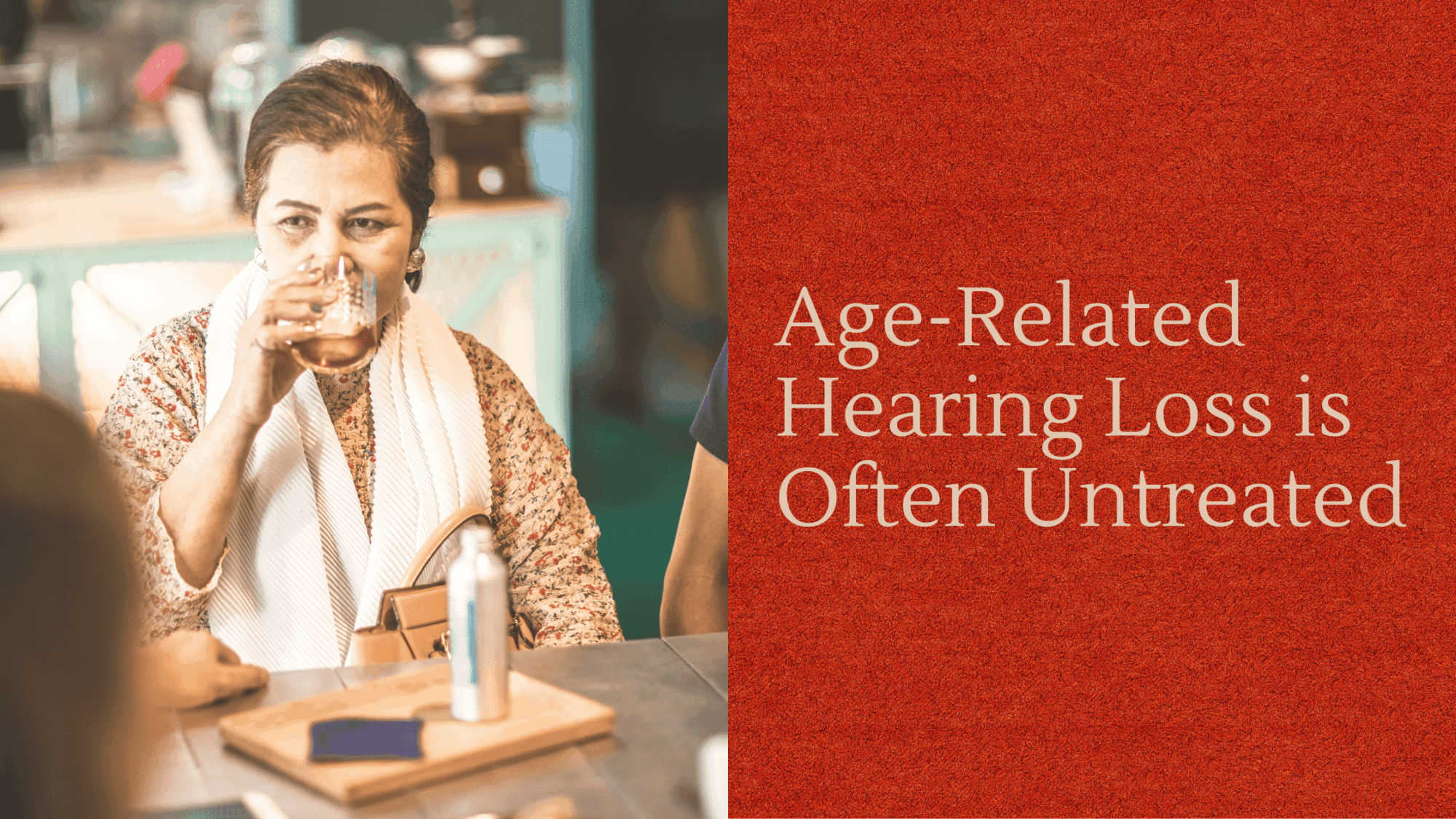- The Connection Between Hearing Loss and Dementia - July 30, 2024
- The Advantages of Rechargeable Hearing Aids - July 16, 2024
- How to Enjoy Music Festivals While Protecting Your Hearing - July 3, 2024
Hearing loss is often seen as a natural part of aging. It’s true that older adults often experience hearing loss. Unfortunately, this link between age and hearing loss often leads to older adults ignoring their hearing loss! Here’s what you need to know about age-related hearing loss, and why you should make treating hearing loss a priority.
Age-Related Hearing Loss
The name really says it all. Age-related hearing loss, or presbycusis, is hearing loss caused by aging. As you age, your body goes through a number of changes. Your joints get a bit stiffer, you have less energy than before, and your eyesight isn’t quite as sharp as it once was. Your hearing is also affected by age. In fact, around half of all adults over 65 have some hearing loss.
Hearing loss can be a natural part of aging. However, in the same way that you wear glasses to correct your changing eyesight, you should wear hearing aids to help you hear the sounds you’re missing.
What Causes Age-Related Hearing Loss?
Age-related hearing loss is a gradual process. Over time, the cells in your ears can get damaged by the normal wear and tear your body experiences throughout life. These cells can be harmed by changes in blood flood due to high blood pressure, diabetes, or even smoking. Loud noises can also damage these delicate cells. Once the cells in your ears are damaged, they can’t be regrown or repaired. This leads to permanent hearing loss.
Untreated Hearing Loss
Sadly, many older adults think it’s not worth the effort to treat their hearing loss. Up to two thirds of adults with hearing loss don’t seek treatment! Because age-related hearing loss is so gradual, you might not notice just how many sounds you’re missing, or how much it’s affecting your life.
- Relationships: Living with untreated hearing loss affects your relationships in some profound ways. Hearing loss makes it increasingly hard to follow conversations. You’ll miss a lot of what’s being said, so you ask your loved ones to repeat themselves. Everyone can get a bit frustrated when you just can’t understand the conversation. This poor communication comes between you and the people who matter the most.
- Social isolation: Hearing loss is closely linked to social isolation. In social settings there is often a lot of background noise. Several people are talking at once, and you can’t follow all these fast conversations. You may feel embarrassed when you can’t hear, or when you mishear a comment and then say the wrong thing. People with hearing loss stay home more often than those with hearing aids.
- Poor physical health: When you’re not getting out as much as before, your physical health can also suffer. You’re not as active as you could be, and you have a higher risk of weight gain, weakened muscles, or poor overall health.
- Depression: Hearing loss can lead to depression. Relationships with family and friends is a huge source of joy in life, and when adults with hearing loss feel isolated, it’s easy to see how this could cause depression.
Signs of Age-Related Hearing Loss
Age-related hearing loss is gradual and it can sneak up on you. Watch for these signs of hearing loss so you’ll recognize hearing loss early:
- You can’t hear conversations in noisy places
- You often ask people to repeat themselves
- Words seem a bit fuzzy or unclear
- You keep turning up the volume on the TV
- You can’t hear high-pitched sounds, like the beeping of an alarm, or birdsong
- It’s hard to hear the difference between certain sounds, like “s” and “th”
Treating Age-Related Hearing Loss
The most common treatment for age-related hearing loss is to wear quality hearing aids. During a hearing test, you’ll find out about your exact hearing needs, and your new hearing aids will be calibrated to help you hear the sounds you’re missing. You will easily hear the sounds you’re struggling to hear, and other sounds won’t be uncomfortably loud. Modern hearing aids also have a number of programs to help you hear better, like speech enhancement and noise reduction. Treating hearing loss will make you seem younger than ever, as you enjoy spending more time with your family and friends.
Contact us today to schedule an appointment for a hearing test! We’re here to help you on the journey to better hearing.

